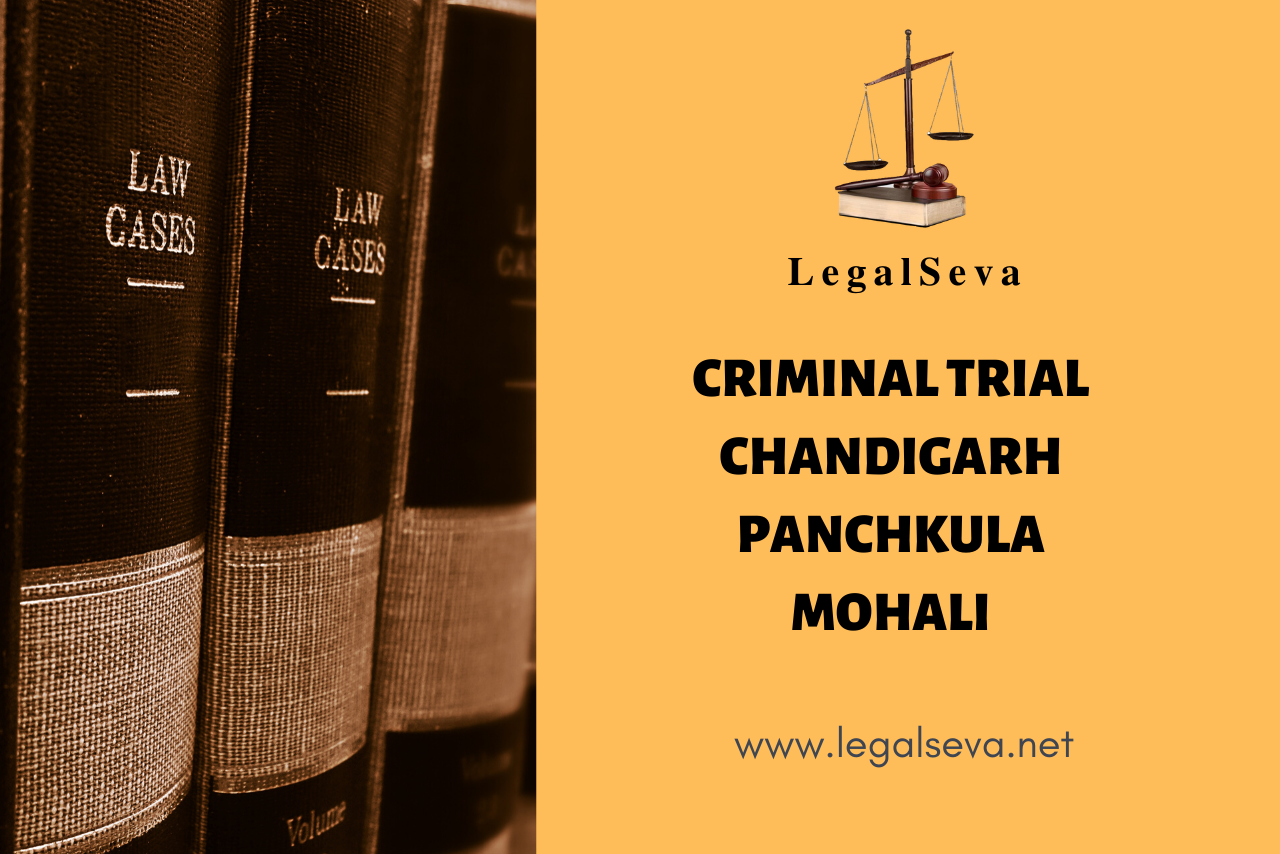Last Updated on July 8, 2024 by Satish Mishra
Know stages of your criminal case by Criminal Trial lawyer Chandigarh Panchkula Mohali who would guide on each and every step of prosecution.
INTRODUCTION
In India, criminal law is divided into three parts:-
- The Indian Penal Code, 1860
- The Criminal Procedure Code, 1973
- The Indian Evidence Act, 1872
That means, the combination of these three acts made a criminal law.
Types of a criminal trial
- Warrant cases
- Summon cases
- Summary cases
Also Read-The Bharatiya Nagarik Suraksha Sanhita, 2023
Stages of Criminal trial
The stages are:-
- FIR
- Investigation
- Charges
- Plea of guilty
- Prosecution evidence
- Statement of the accused
- Defence evidence
- Final arguments
- Judgment
Also Read- Conviction in Criminal Cases Chandigarh Panchkula Mohali
Let’s discuss all stages of criminal trial in detail.
- First information report (FIR) – Basically, FIR is a statement of the informant as recorded under section 154 of CrPC, with the objective to set the criminal law in motion. It means the information by whomsoever gave to the officer in charge of a police station in relation to the commission of a cognizable offence and which is first in point of time and on the strength of which the investigation into that offence in commenced. FIR is only a sort of a information of the offence which has been committed, It is not considered as a evidence.
- Commencement of investigation – This is a very important stage of criminal trial because it includes all the efforts and process of a police officer the collection of evidence like proceeding to the spot; ascertaining facts and circumstances; discovery and arrest of the suspected offender; collection of evidence relating to the commission etc. Then the investigation ends in a police report to the magistrate.
- Charges – After investigation there is a framing of charge. If a person is not discharged, the trial begins by framing a charge as a specific accusation against the accused which is read and explain it to him.
- Plea of guilty – After framing a charge the judge proceeds to take the ‘plea of guilty’ which is an opportunity to the accused to acknowledge that he pleads guilty and does not wish to contest the case.
- Recording of the prosecution evidence – Recording of the prosecution evidence is examination of the prosecution witness by the police prosecutor, marking of exhibits and cross examination by defence counsel.
- Statements of the accused – 313 of the CrPC empowers the court to give an opportunity or being heard to an accused and explain the facts and circumstances appearing against him under this section, an accused shall not be administered an oath and the accused may refuse to answer the question so asked. The answer given by the accused may be taken into consideration in such inquiry or trial and put in evidence for or against him.
- Defence evidence – In cases of accused not being acquitted by the court, the court is given an opportunity to present any defence evidence in support of the accused. The defence can produce both oral and documentary evidence. In India, since the burden of proof is on the prosecution the defence, in general, is not required to give any defence evidence.
- Final arguments – Once the public prosecutor and the defence counsel present their arguments, the court generally reserve its judgment.
- Judgment – Judgment is the final reasoned decision of the court as to the guilt or innocence of the accused. After application of judicial mind, the judge delivers a final judgment holding an accused guilty of an offence or acquitting him of the particular offence. When the person in convicted, then both sides are invited to give arguments on the punishment which is to be awarded. This is usually done when the person is convicted of an offence whose punishment is life imprisonment or capital punishment.
Also Read- Popular Posts on Stages of Criminal Trial in India
In the above article, we discussed all the stages of criminal trial or cases in India.
For case specific advice one can contact expert criminal trial court lawyers in Chandigarh Panchkula Mohali Kharar Derabassi Zirakpur (Punjab & Haryana).
This post is written by Kartik Sharma. ]
More on 99888-17966.
Disclaimer – The opinion expressed is of the Author and do not resembles the views of website.
